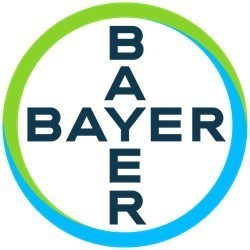WHIPPANY, N.J., March 27, 2019 /PRNewswire/ -- Bayer released the following statement in reaction to the phase two verdict in favor of the plaintiff in the case of Hardeman v Monsanto, a trial conducted in the federal glyphosate multi-district litigation before Judge Vince Chhabria in the Northern District of California.
"We are disappointed with the jury's decision, but this verdict does not change the weight of over four decades of extensive science and the conclusions of regulators worldwide that support the safety of our glyphosate-based herbicides and that they are not carcinogenic. The verdict in this trial has no impact on future cases and trials, as each one has its own factual and legal circumstances. Bayer will appeal this verdict.
"The jury in this case deliberated for more than four days before reaching a causation verdict in phase one, an indication that it was very likely divided over the scientific evidence. The legal rulings under which the court admitted expert scientific testimony from the plaintiff that it called 'shaky' is one of several significant issues that the Company may raise on appeal. Monsanto moved to exclude this same evidence before trial.
"We have great sympathy for Mr. Hardeman and his family. Bayer stands behind these products and will vigorously defend them."
"Roundup products and their active ingredient, glyphosate, have been used safely and successfully for over four decades worldwide and are a valuable tool to help farmers deliver crops to markets and practice sustainable farming by reducing soil tillage, soil erosion and carbon emissions. Regulatory authorities around the world consider glyphosate-based herbicides as safe when used as directed. There is an extensive body of research on glyphosate and glyphosate-based herbicides, including more than 800 rigorous studies submitted to EPA, European and other regulators in connection with the registration process, that confirms that these products are safe when used as directed. Notably, the largest and most recent epidemiologic study – the 2018 independent National Cancer Institute-supported long-term study that followed over 50,000 pesticide applicators for more than 20 years and was published after the IARC monograph – found no association between glyphosate-based herbicides and cancer. Additionally, EPA's 2017 post-IARC cancer risk assessment examined more than 100 studies the agency considered relevant and concluded that glyphosate is 'not likely to be carcinogenic to humans,' its most favorable rating. As Health Canada noted in a very recent statement, 'no pesticide regulatory authority in the world currently considers glyphosate to be a cancer risk to humans at the levels at which humans are currently exposed.'"
For more information on Roundup, visit https://www.bayer.com/en/glyphosate-roundup.aspx.
For more information on the Roundup litigation, visit http://www.glyphosatelitigationfacts.com/main/
Bayer: Science For A Better Life
Bayer is a global enterprise with core competencies in the life science fields of health care and nutrition. Its products and services are designed to benefit people by supporting efforts to overcome the major challenges presented by a growing and aging global population. At the same time, the Group aims to increase its earning power and create value through innovation and growth. Bayer is committed to the principles of sustainable development, and the Bayer brand stands for trust, reliability and quality throughout the world. In fiscal 2018, the Group employed around 117,000 people and had sales of 39.6 billion euros. Capital expenditures amounted to 2.6 billion euros, R&D expenses to 5.2 billion euros. For more information, go to www.bayer.us.
Media Contact:
Chris Loder
Bayer U.S.
(201) 396-4325
[email protected]
SOURCE Bayer
Related Links
WANT YOUR COMPANY'S NEWS FEATURED ON PRNEWSWIRE.COM?
Newsrooms &
Influencers
Digital Media
Outlets
Journalists
Opted In





Share this article